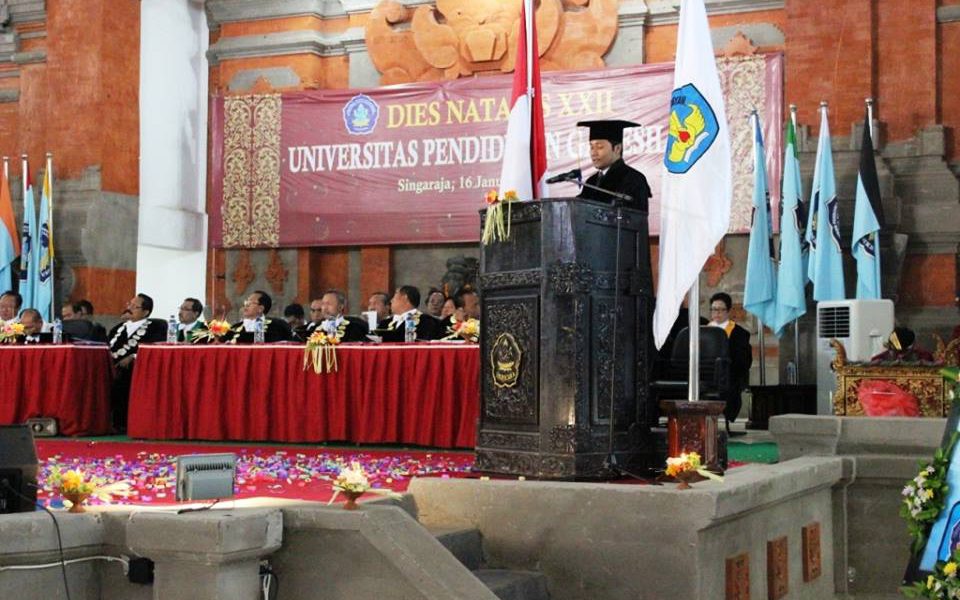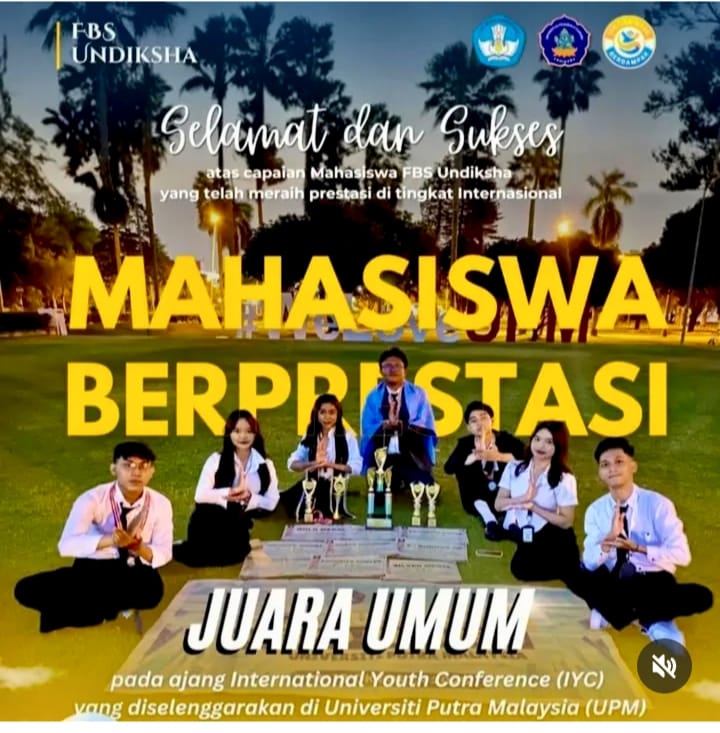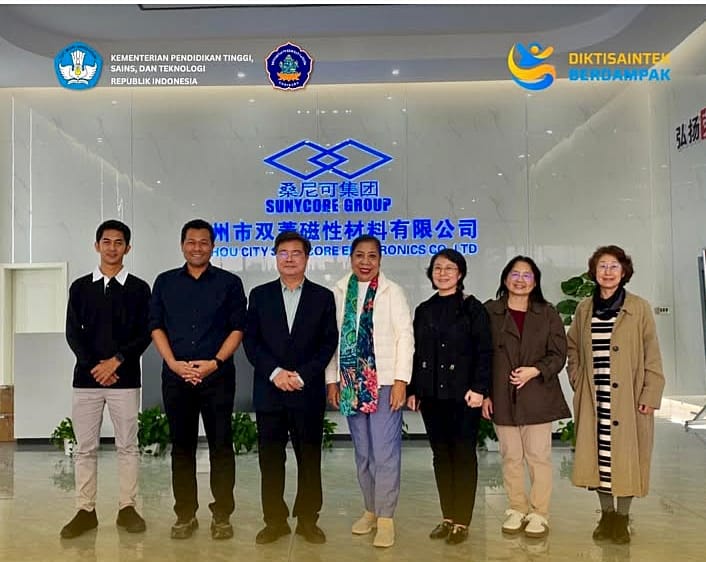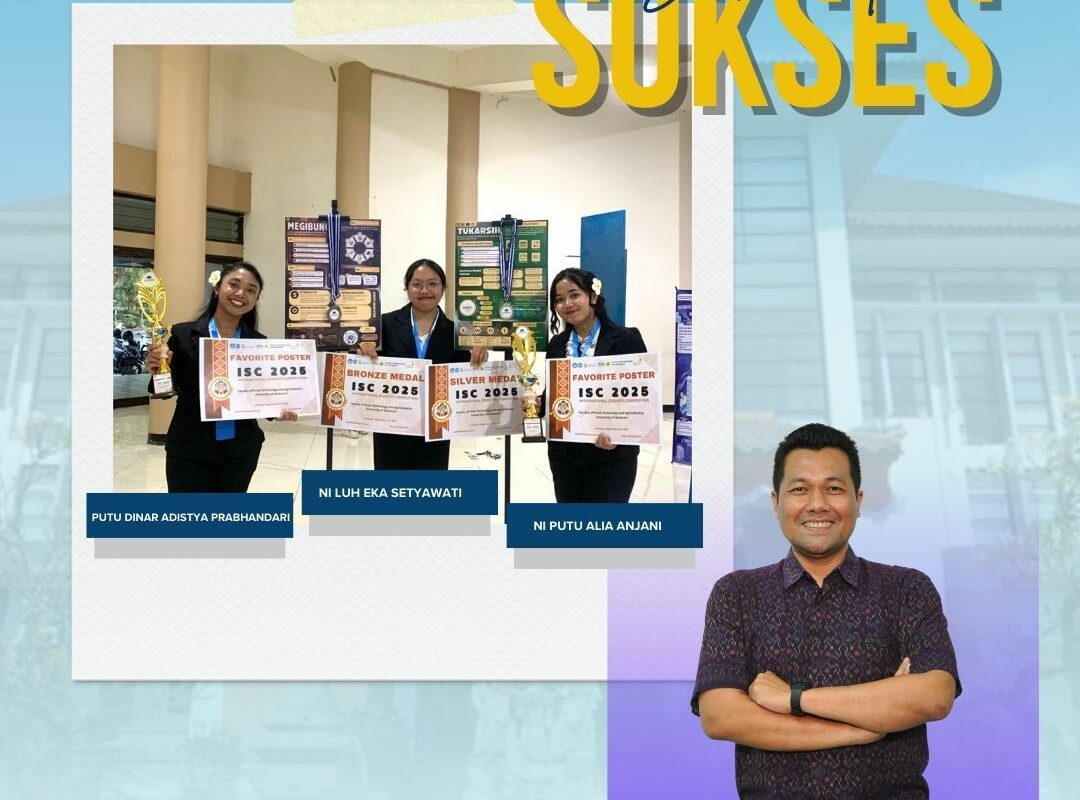SINGARAJA. Ganesha University of Education (Undiksha) has just celebrated its 22nd Anniversary. A series of agendas have been conducted, and one of them is Dies Natalis, held on January 16th, 2015 in the campus’ auditorium. In the event, all university senate members, faculty and study program or department representatives, student organizations’ representatives and invited guests or stakeholders from the provincial and Buleleng local governments gathered to attend the university’s annual Rector’s report on what Undiksha has achieved so far, which at the same time represents Undiksha’s commitment to its being a public institution (public accountability).
One of the traditions in every Dies Natalis is the Dies Natalis speech (called Academic Oration) delivered by a lecturer. This is usually from one selected lecturer who has just accomplished his/her doctorate program, and who is agreed upon by a panel of committees and the institutional leaders of the university. To English Education Department’s pride, for this year’s speech, Made Hery Santosa, Ph.D. – now, the department head – was assigned, following his predecessor, Dr. I Gede Budasi, M.Ed., who also had the honor to have the same assignment in the 2008’s Dies Natalis. In his speech, presented in a communicative way, Pak Hery, so he is usually called, addressed the issue of e-learning. He shared insights drawn from theories and experiences of universities in USA, Europe, and Asia, including that in Indonesia in implementing e-learning.
There are at least two major issues that are interesting to be put forward from the speech concerning e-learning. First is the power of e-learning in developing graduates’ 21st century skills (soft skills; generic skills; graduate attributes) – such as autonomy, critical thinking, team work, decision making, leadership – in order to be able to compete and catch up with human resources from other countries who he said as “having run speedily” (that is, to say that in some way we have been left behind). Included here is how e-learning can cope with some culturally inherited “Indonesian and Balinese”, Eastern socio-cultural values (passive, reticent, reluctant, hierarchy) that can potentially provide challenges for the development of the important 21st century skills on the part of our students. He said e-learning can help to create graduates who have both local wisdom and global (‘glocal’) perspectives, i.e. those who have good global insights while at the same time still having robust awareness of their own local and cultural identity. This kind of awareness is deemed to be very important in the middle of global competition, such as the in-coming ASEAN Economy Community.
The second important thing that he addressed is his own idea that e-learning can provide an alternative basis for Undiksha as the only state university of education in Bali to start off its centre of excellence development. Like Undiksha, there are many other universities in Indonesia and Bali – not to mention a lot more worldwide – which also provide teacher training and education program. In this tight global competition with other universities, Pak Hery believes that by building better e-learning capacity and making this as its distinct strength or feature, Undiksha can compete with the other universities and will be able to survive. Can Undiksha do it? As it is now becoming a bigger university, Pak Hery – as what he always says in front of his students – firmly believes: “Yes, Undiksha can.” Amen.
Media coverage includes Radio Republik Indonesia (RRI), Pos Bali, Nusa Penida Media and Dewata Newspaper (in Indonesian).
Read his written speech here and his presentation here.
The video is below.
Contributor: I Putu Ngurah Wage Myartawan, S.Pd., M.Pd. (Secretary of English Education Department)





